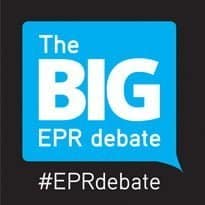Bryant backs The Big EPR Debate
- 17 April 2013

Beverley Bryant, NHS England’s director of strategic systems and technology, has given her support to EHI’s Big EPR Debate.
“It will be helpful because I want to be more consultative – not just to funnel stuff down from the centre – and this will help achieve that,” she said.
EHI has launched The Big EPR Debate now because the NHS is once again being urged to implement electronic patient records on a tight timescale.
Health secretary Jeremy Hunt has presented EPRs as the first step towards his vision of a “paperless” NHS – one using electronic records and communications – by 2018.
Trusts are expected to have plans for using electronic records in place by 2014 and to be implementing them the following year.
NHS England is due to issue guidance in June on how trusts should go about this, but Bryant assured EHI it had not yet been “nailed down.”
“Basically, I want the guidance to speak to everybody,” she added. “The big challenge is that if you want to write guidance that everyone can connect to it is usually quite high level and vague. I want it to be detailed and specific.
“I want to be able to tell trusts on paper what their next step might be. So, if they’re just nowhere we can say: ‘here are some software suppliers’ ideas of how it might be done, here are examples of people who have done it,’ – so they can take that first step.”
The Big EPR Debate is asking EHI readers to comment, positively and in detail, on what the guidance should – and should not – seek to do, how EPR should be defined, what it should include, and what the next steps should be.
For trusts at a more advanced level of digitisation, Bryant said she wanted the guidance to help to future proof their solutions and to build better clinical engagement.
“Sometimes, trusts have great solutions, but uptake is not comprehensive across the hospital,” she pointed out, adding that more digitised trusts also needed to work with their local health economies, to build integration.
“The idea is to speak to everybody on the spectrum, from people who are nowhere to those who are really advanced. Ultimately, we want a fully integrated care record,” she explained.
Bryant acknowledged that NHS England is still “toying around with the words” used to describe what it is trying to achieve.
Words and phrases such as ‘electronic record keeping’, ‘paperless NHS’, ‘electronic patient records’ or ‘electronic health records’ have all been used to describe its aims.
EHI is using the phrase EPR to mean the core organisational patient record – the essential foundation for subsequent integrated health – or even health and social care – records.
But Bryant stressed: “We don’t want people to tick the boxes and miss the point. It’s not just about going after the targets of the guidance, but really understanding what they are doing. The driver for doing this is to get systems used by clinicians to inform clinical decisions.”
She added that NHS England would map progress and find “levers” to encourage it. “We don’t’ want to set an end deadline, but I do want to push quite hard and doing nothing will not be acceptable,” she said.
And she emphasised that now is the moment to contribute to the debate, because it is imperative for the guidance to come out in time to give trusts time to develop their plans ahead of the April deadline.
“We haven’t got time for a formal consultation, so [we are looking for] more information through people like yourselves,” she said.
“Any details or specific concerns or comments that I can take on board would be really useful – so engage and respond because we are listening.”
The Big EPR Debate is asking readers to comment, positively and in detail, on some key issues. What should NHS England’s June guidance look like, and what should it not attempt to do? What do you understand by the term EPR; and what should not count as one?
What are the most clinically valuable components of an EPR, and what can be left for later? What is the best evidence on benefits available? What technologies should we adopt, and not get distracted by? And what steps are needed nationally and locally for different organisations to make progress?
You can see all the responses that have been made so far on our new, dedicated The Big EPR Debate page, and take part in the discussion using our comment functionality. Join the debate.




